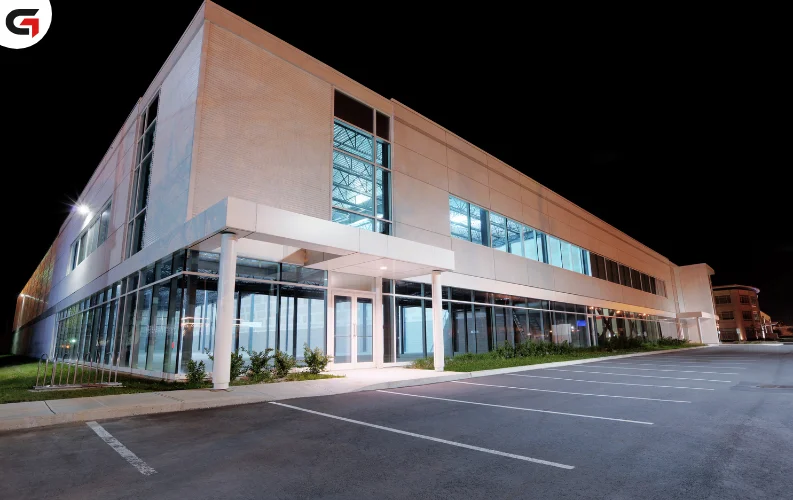In today’s economy, two high-performance industries consistently stand out for their earning potential and competitive career appeal: commercial real estate (CRE) and software sales. While both paths offer six-figure incomes and clear scalability for top performers, they differ dramatically in terms of business model, compensation structure, day-to-day demands, and wealth-building potential.
Software sales professionals often enjoy structured compensation, benefits, and predictable pipelines, whereas commercial real estate brokers operate more like entrepreneurs, managing risk, investing time in long sales cycles, and often working for commission only. Both paths can be extremely profitable, but “lucrative” depends on how one defines success: short-term earnings, long-term equity, work-life autonomy, or wealth creation.
This article compares these two powerful career paths across multiple dimensions, including income structure, growth trajectory, scalability, risk, and lifestyle, to answer a central question:
Is commercial real estate more lucrative than software sales?
Earnings Structure: How Each Career Pays
The first critical difference lies in how professionals in these industries earn.
In software sales, particularly in business-to-business (B2B) or enterprise SaaS (Software as a Service), income is largely structured around a base salary plus commissions. Most account executives receive a stable income floor and are paid on top of that for hitting or exceeding performance targets. Commissions are tied to closed deals, new contracts, or renewal values, often capped with specific thresholds.
In contrast, commercial real estate brokers earn almost exclusively through commissions on closed transactions. These deals involve sales or leases of commercial properties, which are often higher in value than residential real estate. However, they are less frequent, take longer to close, and offer no safety net during slow periods. Compensation can vary widely based on region, asset type, and deal size.
While software sales offers a relatively secure ramp-up, CRE professionals must endure a potentially long lead time before seeing meaningful income. But the reward, when it comes, can be significantly larger.
Explore More:- What Are the Commercial Real Estate Valuation Methods?
Barriers to Entry and Early Career Ramp-Up
Getting started in software sales often requires a bachelor’s degree, strong communication skills, and a willingness to learn tech platforms. Entry-level sales development reps (SDRs) can move into account executive (AE) roles within 12–24 months if they consistently hit performance metrics.
In contrast, commercial real estate is open to individuals from diverse educational backgrounds, but success depends heavily on self-discipline, market knowledge, and resilience. Most brokerages do not offer a salary. New brokers must build relationships, understand asset valuation, and manage unpredictable cycles, often for a year or more, before closing their first big deal.
For those needing immediate income and structure, software sales may appear more accessible. But for those who can withstand the initial drought, CRE offers exponential potential.
Scalability and Long-Term Wealth Potential
While software sales professionals can earn substantial commissions, especially in enterprise sales, there is often a cap on how much control they have over their long-term wealth. Even with generous commission plans and stock options, employees are still bound by company policies, territory limitations, and compensation ceilings.
CRE brokers, however, operate more like independent entrepreneurs. The scalability of their income is tied not only to deals closed but also to the possibility of evolving into ownership. Many successful brokers eventually transition into:
-
Investment syndication
-
Property acquisition and development
-
Passive income from rental portfolios
-
Equity participation in deals
This ownership element gives commercial real estate a unique advantage: the ability to build and preserve wealth independent of employer structures.
Comparing Income Trajectories
Software Sales:
-
Early career OTE (On-Target Earnings): $100K–$150K
-
Mid-level AE roles: $150K–$250K
-
Enterprise or strategic sales: $250K–$500K+
-
Startup IPO windfalls or equity exits (rare but possible)
Commercial Real Estate:
-
First-year: Often under $60K (commission delays)
-
Year 3–5: $150K–$300K+ with consistent deal flow
-
Top-tier brokers: $500K–$2M+ annually
-
Long-term ownership and passive income from assets
While software sales accelerates faster, CRE offers a higher ceiling over time, especially when asset ownership is involved.
Read More:- How Would You Build a Highly Scalable Real Estate Business?
Risks and Economic Sensitivity
CRE is closely tied to macroeconomic conditions. During downturns, leasing slows, property values dip, and capital becomes scarce. Brokers often face dry spells with no commissions, particularly in cyclical markets like office or retail.
Software sales, particularly in enterprise SaaS, has built-in resiliency. Companies continue to spend on essential software solutions even during downturns, and recurring revenue from existing clients cushions volatility. Sales reps may see reduced bonuses or layoffs in hard times, but most enjoy greater income consistency.
That said, software is also subject to rapid obsolescence, product pivots, and internal restructuring, especially in fast-scaling startups. Reps tied to underperforming products may see their income evaporate despite their skills.
Work-Life Balance and Lifestyle Trade-Offs
Another key distinction between the two careers lies in how work is structured.
Software sales professionals generally work in structured environments, Monday to Friday, standard office hours (even remote). Their tools are digital (CRM systems, demos, Zoom calls), and performance is trackable. While pressure to meet quotas can be intense, there’s a clear path and workflow.
Commercial brokers, however, have greater autonomy, but also greater variability. Their days may involve site visits, client tours, legal consultations, and irregular hours. Weekend calls, urgent deal requests, and long negotiations are common. Success depends heavily on self-management and client responsiveness.
For individuals craving flexibility and willing to self-direct, CRE can be deeply fulfilling. For those who prefer defined targets and structured systems, software sales offers a more manageable lifestyle.
Key Challenges in Each Career
Challenges in Commercial Real Estate:
-
No base salary (most of the time)
-
Long deal cycles with inconsistent income
-
Requires strong networking and market knowledge
-
Susceptible to economic cycles and interest rate shocks
-
Must self-generate leads and maintain client relationships
Challenges in Software Sales:
-
High-pressure quotas and metrics
-
Rapid product evolution requiring continuous learning
-
Dependent on company performance and sales enablement
-
Risk of being assigned low-potential territories
-
Limited influence over product or pricing decisions
Who Wins? The Final Analysis
Ultimately, both commercial real estate and software sales can be extremely lucrative, but their value depends on:
-
Your personal strengths
-
Risk tolerance
-
Financial runway
-
Preferred lifestyle
-
Long-term career vision
If you're looking for fast income, structured growth, and technology-centric work, software sales is likely the better path, especially in high-growth startups or established enterprise sales roles.
But if your goals include building wealth through ownership, controlling your earning potential, and growing a real asset portfolio, commercial real estate offers unmatched opportunity, albeit with a higher barrier to success and delayed gratification.
Conclusion
Is commercial real estate more lucrative than software sales?
Yes, for those who have the patience, strategic mindset, and drive to thrive in a performance-based, entrepreneurial setting. CRE provides greater long-term upside, equity participation, and wealth-building capacity. However, software sales is often more accessible, with faster income realization and fewer operational headaches.
The most lucrative career is not the one with the highest theoretical income, but the one that aligns with your strengths, values, and long-term financial goals. Both industries offer rewarding paths. The key is to choose the one where you can perform consistently, evolve continuously, and remain committed for the long haul.
You may also like:-






















